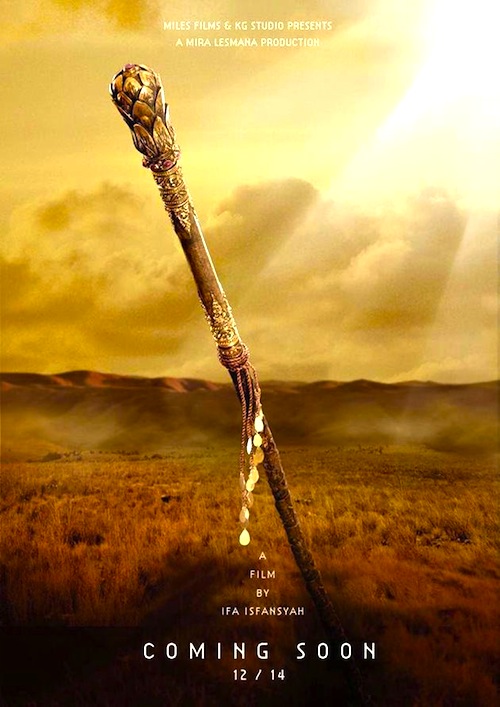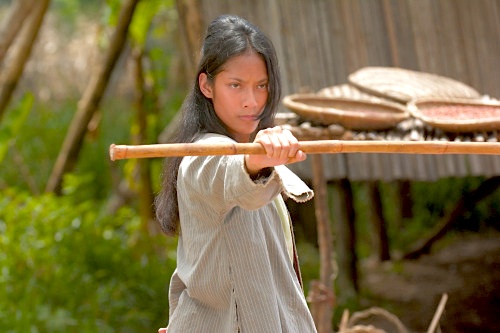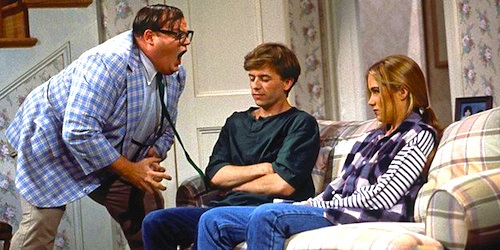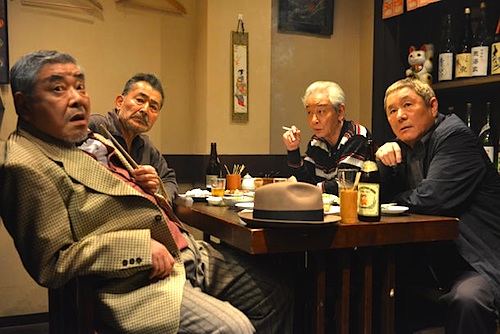By Joe Bendel. Sure, the idea of delinquent youths becoming guinea pigs in mind control experiments is hardly unprecedented, but there is something decidedly unsettling about it when done with a German accent—if you know what I mean. Instead of juvenile hall, Sam is sentenced a well-funded private school and research facility. He probably had a hard time fitting in, considering he groggily awakens in a subway tunnel with a nasty case of amnesia during the opening moments of Özgür Yildirim’s Boy 7, which screened during the 2015 Fantasia International Film Festival in Montreal.
His name is Sam, not that he knows that. However, he quickly figures out the cops want him for murder. Retracing his step from the clues in his pocket, Sam discovers a notebook stashed in a diner men’s room. It seems to be a journal he kept in the apparently likely event of his complete memory loss.
For some unfortunate bit of hacking, Sam was to serve a term at the institute, where the gray military uniforms really give off bad vibes. He will be the new Number 7, because the old Number 7 died from a stroke. It was unfortunate, but these sorts of things seem to happen there. His hard-partying roommate Louis (#6) knows something is wrong about the place, but he tries to live in denial. Lara (#8) is more openly rebellious, but the punky girl initially has no interest in Sam’s attempts to form an alliance, or anything else for that matter. Nevertheless, they grow closer as things get weirder around them. In fact, it is Lara that comes to the clean-slated Sam’s rescue.
Yildirim’s Boy 7 was adapted from the Dutch YA novel by Marco van Geffen and Philip Delmaar, as was the Dutch film version that released a mere six months earlier. German efficiency is certainly impressive, but in this case Yildirim marries it up with an ultra-slick Twyker-esque style. Although it is doomed to be compared to the Divergent and Maze Runner franchises, Boy 7 is much more closely akin Baran bo Odar’s Who Am I—No System is Safe, for reasons beyond language.

Lead actor David Kross is best known for his work in The Reader, but in this case, try not to hold it against him. He has clearly grown in his craft. While he is still a convincing nebbish outsider, he also conveys some grit and a bit of a dark side as Sam. As Lara, Emilia Schüle has a weird, hard to define screen presence, but it sort of works in context. Unfortunately, the villains are not nearly as distinctive as they ought to be.
Nevertheless, Yildirim keeps it all hurtling along at full throttle, while cinematographer Matthias Bolliger gives it an eerie nocturnal noir glow. It is a quality production that far surpasses the low expectations its young adult credentials would suggest. Recommended for paranoid youths, the German Boy 7 screened this week, as part of this year’s Fantasia.
LFM GRADE: B
Posted on August 1st, 2015 at 3:41pm.





